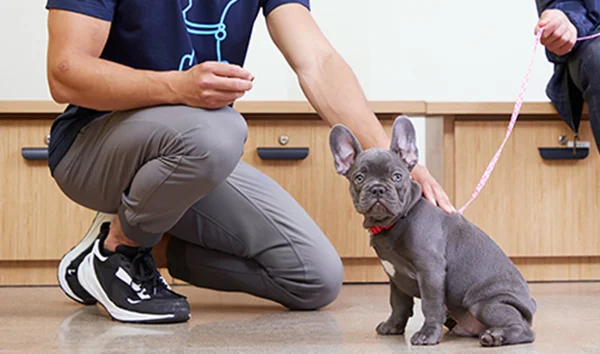When it comes to dog training in Charlotte, NC, finding the right approach for your furry friend is crucial. Whether you’re a first-time dog owner or looking to refine your pet’s behavior, Charlotte offers a range of dog training services tailored to meet diverse needs. This comprehensive guide will explore the best strategies, techniques, and local resources for dog training in Charlotte, NC, ensuring you find the perfect match for you and your dog.
Why Choose Professional Dog Training in Charlotte, NC?
Professional dog training in Charlotte, NC, offers several advantages over DIY methods. Experienced trainers provide structured programs that are specifically designed to address various behavioral issues and promote positive behavior in your pet. Here are some reasons why professional dog training can be beneficial:
- Expertise and Experience: Trainers in Charlotte, NC, bring years of experience and expertise to the table, ensuring that they can effectively address your dog’s unique needs.
- Customized Training Plans: A professional trainer will create a customized plan tailored to your dog’s behavior, personality, and your goals.
- Effective Communication: Trainers can help bridge the communication gap between you and your dog, leading to better understanding and cooperation.
Types of Dog Training Services in Charlotte, NC
Charlotte offers a variety of dog training services to suit different needs and preferences. Here are some popular options:
- Obedience Training: This foundational training focuses on teaching basic commands such as sit, stay, and come. It’s essential for building a strong relationship and ensuring your dog behaves well in various situations.
- Behavior Modification: If your dog exhibits problematic behaviors such as excessive barking, chewing, or aggression, behavior modification training can help address and correct these issues.
- Puppy Training: Early training is crucial for puppies. Puppy training classes in Charlotte, NC, often include socialization, basic commands, and proper behavior to set the foundation for a well-behaved adult dog.
- Advanced Training: For dogs that have mastered basic commands, advanced training can introduce more complex skills and tricks, enhancing your dog’s capabilities and your bond.
Choosing the Right Dog Trainer in Charlotte, NC
Selecting the right dog trainer is a critical step in ensuring effective training outcomes. Here are some factors to consider when choosing a dog trainer in Charlotte, NC:
- Qualifications and Certifications: Look for trainers with certifications from reputable organizations such as the Association of Professional Dog Trainers (APDT) or the International Association of Canine Professionals (IACP).
- Training Methods: Ensure the trainer’s methods align with your preferences and values. Positive reinforcement techniques are generally recommended for their effectiveness and humane approach.
- Reputation and Reviews: Research the trainer’s reputation in the community. Online reviews and testimonials can provide valuable insights into their success and client satisfaction.
- Trial Sessions: Many trainers offer trial sessions or consultations. Take advantage of these to gauge the trainer’s style and determine if it’s a good fit for you and your dog.
The Benefits of Group Classes vs. Private Sessions in Charlotte, NC
When considering dog training charlotte nc, you’ll need to decide between group classes and private sessions. Each option has its advantages:
- Group Classes: These are often more affordable and provide the opportunity for socialization with other dogs. They can be particularly beneficial for puppies and dogs needing to learn how to behave around other animals and people.
- Private Sessions: One-on-one sessions offer personalized attention and can be tailored to address specific issues. They are ideal for dogs with unique behavioral challenges or owners who prefer a more customized approach.
Incorporating Dog Training into Daily Life
Effective dog training doesn’t stop when you leave the training facility. Incorporating training into your daily routine can reinforce what your dog has learned and encourage continued good behavior. Here are some tips for integrating dog training into your everyday life:
- Consistency: Be consistent with commands and routines. Consistent reinforcement helps your dog understand what is expected and builds good habits.
- Positive Reinforcement: Use treats, praise, and toys to reward good behavior. Positive reinforcement helps your dog associate training with positive experiences.
- Practice Regularly: Short, frequent training sessions are more effective than long, infrequent ones. Aim for several short sessions throughout the day to keep your dog engaged and learning.
- Set Realistic Goals: Set achievable goals for your dog’s training. Progress may be gradual, so celebrate small victories and be patient with your pet’s learning process.
Resources for Dog Training in Charlotte, NC
Charlotte is home to a variety of resources for dog training, including local trainers, pet stores, and community organizations. Here are some valuable resources to consider:
- Local Dog Trainers: Research local dog trainers and training facilities in Charlotte, NC, to find the right fit for your needs. Many trainers offer a range of services and specializations.
- Pet Stores: Pet stores often offer training classes and workshops. They can also be a good source of information on local trainers and training tools.
- Community Groups: Join local dog owner groups or online forums to connect with other dog owners and get recommendations for training resources in Charlotte.
- Veterinarians: Your veterinarian can provide recommendations for reputable dog trainers and offer advice on training methods that suit your dog’s health and behavior.
Conclusion
Dog training in Charlotte, NC, offers a wealth of options to help you and your pet build a strong, positive relationship. By choosing the right training approach and incorporating effective techniques into your daily life, you can ensure your dog thrives and behaves well in various situations. Explore the local resources available, and invest in professional training to provide your furry friend with the best possible start in life. Whether you opt for group classes, private sessions, or a combination of both, the key to successful dog training is consistency, patience, and a commitment to positive reinforcement.



